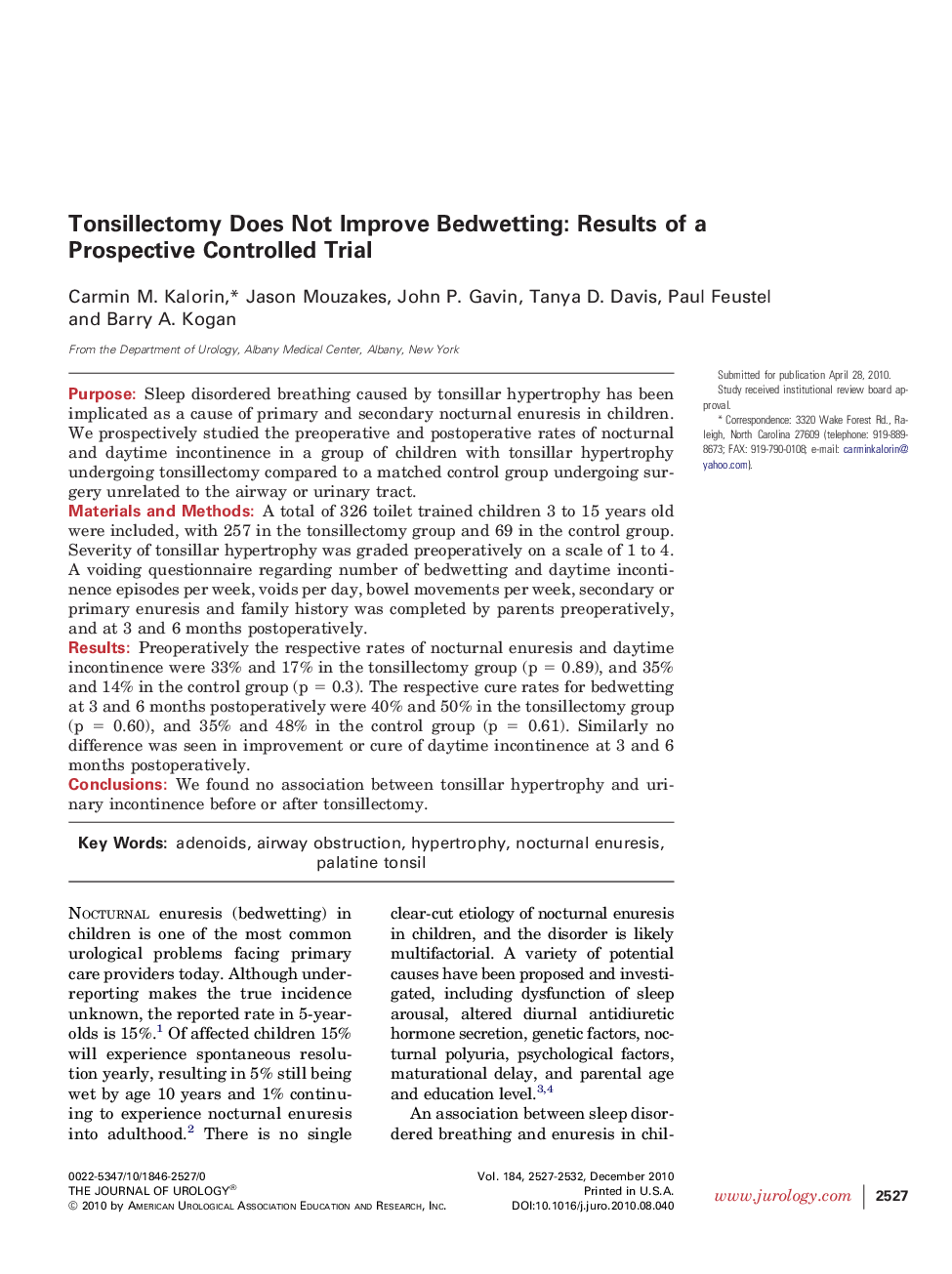| Article ID | Journal | Published Year | Pages | File Type |
|---|---|---|---|---|
| 3873009 | The Journal of Urology | 2010 | 6 Pages |
PurposeSleep disordered breathing caused by tonsillar hypertrophy has been implicated as a cause of primary and secondary nocturnal enuresis in children. We prospectively studied the preoperative and postoperative rates of nocturnal and daytime incontinence in a group of children with tonsillar hypertrophy undergoing tonsillectomy compared to a matched control group undergoing surgery unrelated to the airway or urinary tract.Materials and MethodsA total of 326 toilet trained children 3 to 15 years old were included, with 257 in the tonsillectomy group and 69 in the control group. Severity of tonsillar hypertrophy was graded preoperatively on a scale of 1 to 4. A voiding questionnaire regarding number of bedwetting and daytime incontinence episodes per week, voids per day, bowel movements per week, secondary or primary enuresis and family history was completed by parents preoperatively, and at 3 and 6 months postoperatively.ResultsPreoperatively the respective rates of nocturnal enuresis and daytime incontinence were 33% and 17% in the tonsillectomy group (p = 0.89), and 35% and 14% in the control group (p = 0.3). The respective cure rates for bedwetting at 3 and 6 months postoperatively were 40% and 50% in the tonsillectomy group (p = 0.60), and 35% and 48% in the control group (p = 0.61). Similarly no difference was seen in improvement or cure of daytime incontinence at 3 and 6 months postoperatively.ConclusionsWe found no association between tonsillar hypertrophy and urinary incontinence before or after tonsillectomy.
